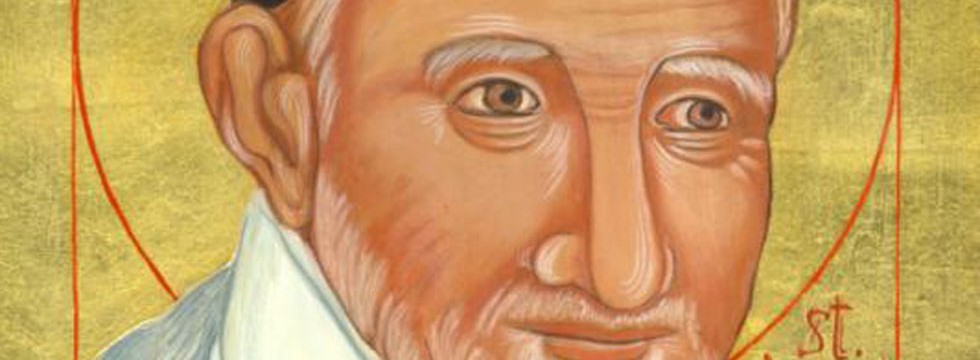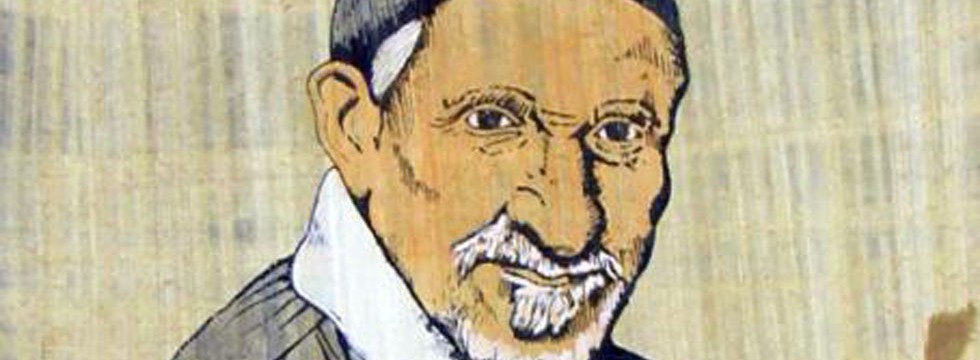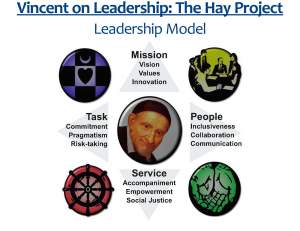Vincent de Paul had a profound impact during his lifetime. He transformed the way social service was practiced in Europe. His compatriots respected him so much they called him Pere de la patri (Father of the country). He did this as a man of strategy and action, as leader and manager. His legacy carries on today in organizations he founded and inspired.
Born in France in 1580 to a peasant family, in his teenage years Vincent aspired to become a Catholic priest – a profession that in those days offered privilege and financial stability. In 1608, following his studies and ordination, he moved to Paris. In the years that followed, he came into contact with the poor and suffering of both urban and rural France. Through reflection on these experiences, he underwent his own transformation – a change of heart – turning his attention to the needs of the poor.
At the same time, Vincent served as tutor and chaplain to the Gondi family, wealthy members of the aristocracy who encouraged and supported Vincent’s charitable works. These works included the founding in 1617 of a lay organization, known as the Ladies of Charity, to serve the poor in towns and villages throughout France. In 1625, he founded the Congregation of the Mission, an order of priests dedicated to serving the poor in the countryside. Members of the order eventually spread to other countries. Known as “Vincentians” they founded DePaul University in Chicago in 1898.
In collaboration with Louise de Marillac, in whom Vincent recognized and fostered leadership potential, Vincent also founded the Daughters of Charity, an order of Catholic women religious, in 1633. Under the guidance and direction of Vincent and Louise, young peasant women trained to serve the sick at home or in hospitals, to shelter the homeless, abandoned children, and babies, and to open schools.
Each of these organizations, initially envisioned, organized, and managed by Vincent, continue their works today. Vincent gave them all a sustainable organizational and financial framework, demanding of himself and others proper training and sound financial management.
Vincentian Values and Competencies
Vincent honored the human dignity of the individual and inspired community transformation for the common good. He sought to promote in those he led virtues that include simplicity, honesty, and zeal. Vincent’s management and leadership style were driven by such competencies as innovation, collaboration, risk-taking, and accompaniment.
The Vincentian Leadership Model is reflective of Vincent’s leadership genius and offers an ethical and values-oriented approach to leadership. It draws upon both Vincent’s legacy and contemporary Vincentian leadership practices.
Working from this model, we seek to provide individuals and organizations with an opportunity to evaluate and grow in their personal, collective and organizational leadership competencies relating to mission, task, people, and service. Individuals who join with us in leadership development can expect increased satisfaction resulting from aligning personal and organizational values and goals, and increased effectiveness through strengthening appropriate competencies.
To read more about the competencies contained within the model, use the link above to view the model on our Project Web site. Once you reach the model, click on the icons found on the model to read more.
It seems to me that your leadership improves every day and is producing additional results
as well as we could wish.
– Vincent de Paul
Letter to Sr. Jeanne Le Peintre
Nantes, November 29, 1651








